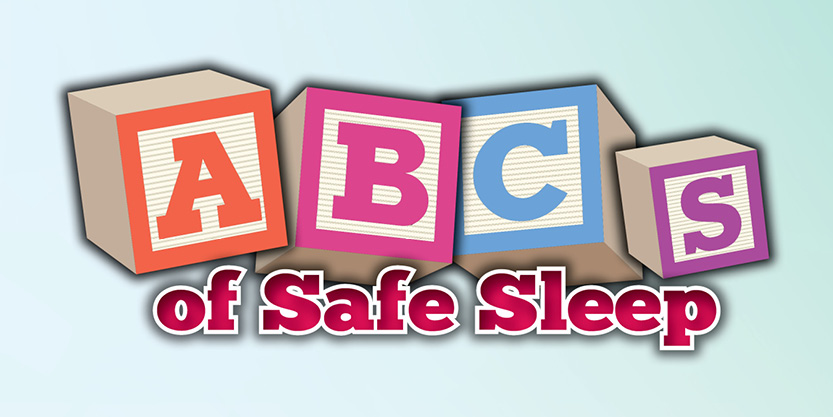ABCs Of Safe Sleep
Sudden Infant Death Syndrome (SIDS) is the major cause of death in infants from 1 month to 1 year of age.
In Kentucky one baby dies every five days in a sleep related death. Many of these deaths are preventable by following the ABC’s of Safe Sleep:
- A) Babies should always sleep Alone. They should sleep close to their parents by sharing a room, but not the bed.
Sharing a bed with a sleeping adult presents many hazards that can cause an infant to choke, suffocate or become trapped.
- B) Babies should always sleep on their Back for every sleep period, both night and naps.
- C) Babies need their own Safe Sleep Space. A Crib, bassinet or pack & play with a firm mattress (one designed for that device) and a snug fitting crib sheet, without any added soft bedding such as blankets, pillows, bumper pads or toys that could cover a baby’s face and cause suffocation.
Breastfeeding helps reduce the risk of SIDS but only if safe sleep practices are also followed.
There is nothing wrong with breastfeeding in bed, but once you are ready to go back to sleep or are feeling drowsy, put your baby back in a crib or bassinet, alone and on his or her back.
The American Academy of Pediatrics recommends that mothers who want to stay close to their babies for nighttime breastfeeding or attachment should sleep in the same room but not on the same bed or sleeping surface.
Sharing the room lets you see, hear, and/or touch your baby. Just place the crib or bassinet next to the bed.
Some babies may fall asleep in their car seat, bouncy seat or swing. However, these seats not designed as a safe sleep space.
When a baby is left in these seats for extended periods of time, especially if they’re alone, he or she can slide down into a dangerous position that blocks breathing.
If your baby falls asleep in one of these seats, remove them from the seat and place your baby flat on her back in a crib, bassinet or pack & play.
In addition to safe sleep practices and breastfeeding, you can reduce your baby’s risk of SIDS:
– By not smoking or using e-cigarettes around the baby;
– By keeping baby at a comfortable temperature, not too warm;
– By having a “designated, dependable adult” to help you care for the baby if you have to take a medication that you know can impair your judgment or reaction time.
From the Kentucky Department for Public Health / Adapted from Safe Sleep Kentucky
http://safesleepky.com/need-to-know/moms-and-dads/ Info for Safe Sleep Kentucky: safesleepky.org

